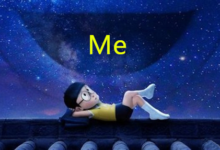The Shadowland of Dreams
Many a young person tells me he wants to be a writer. I always encourage such people, but I also explain that there’s a big difference between “being a writer” and writing. In most cases these individuals are dreaming of wealth and fame, not the long hours alone at the typewriter. “You’ve got to want to write,” I say to them, “not want to be a writer.”
The reality is that writing is a lonely, private and poor-paying affair. For every writer kissed by fortune, there are thousands more whose longing is never requited. Even those who succeed often know long periods of neglect and poverty. I did.
When I left a 20-year career in the Coast Guard to become a freelance writer, I had no prospects at all. What I did have was a friend with whom I’d grown up in Henning, Tennessee. George found me my home―a cleaned-out storage room in the Greenwich Village apartment building where he worked as superintendent. It didn’t even matter that it was cold and had no bathroom. Immediately I bought a used manual typewriter and felt like a genuine writer.
After a year or so, however, I still hadn’t received a break and began to doubt myself. It was so hard to sell a story that I barely made enough to eat. But I knew I wanted to write. I had dreamed about it for years. I wasn’t going to be one of those people who die wondering, “What if?” I would keep putting my dream to the test―even though it meant living with uncertainty and fear of failure. This is the Shadowland of hope, and anyone with a dream must learn to live there.
Then one day I got a call that changed my life. It wasn’t an agent or editor offering a big contract. It was the opposite―a kind of siren call tempting me to give up my dream. On the phone was an old acquaintance from the Coast Guard. He had once lent me a few bucks and liked to egg me about it. “When am I going to get the $15, Alex?” he teased.
“Next time I make a sale.”
“I have a better idea,” he said. “We need a new public-information assistant out here, and we’re paying $6,000 a year. If you want it, you can have it.”
Six thousand a year! That was real money in 1960. I could get a nice apartment, a used car, pay off debts and maybe save a little something. What’s more, I could write on the side.
As the dollars were dancing in my head, something cleared my senses. From deep inside a bull-headed resolution welled up. I had dreamed of being a writer―full time. And that’s what I was going to be. “Thanks, but no,” I heard myself saying. “I’m going to stick it out and write.”
Afterward, as I paced around my little room, I started to feel like a fool. Reaching into my cupboard―an orange crate nailed to the wall―I pulled out all that was there: two cans of sardines. Plunging my hands in my pockets, I came up with 18 cents. I took the cans and coins and jammed them into a crumpled paper bag. There Alex, I said to myself. There’s everything you’ve made of yourself so far. I’m not sure I ever felt so low.
I wish I could say things started getting better right away. But they didn’t. Thank goodness I had George to help me over the rough spots.
Through him I met other struggling artists, like Joe Delaney, a veteran painter from Knoxville, Tennessee. Often Joe lacked food money, so he’d visit a neighborhood butcher who would give him big bones with morsels of meat, and a grocer who would hand him some wilted vegetables. That’s all Joe needed to make down-home soup.
Another Village neighbor was a handsome young singer who ran a struggling restaurant. Rumor had it that if a customer ordered steak, the singer would dash to a supermarket across the street to buy one.
People like Delaney and Belafonte became role models for me. I learned that you had to make sacrifices and live creatively to keep working at your dreams. That’s what living in the Shadowland is all about.
It was a long, slow climb out of the shadows. Yet in 1970, 17 years after I left the Coast Guard, Roots was published. Instantly I had the kind of fame and success that few writers ever experience. The shadows had turned into dazzling limelight.
For the first time I had money and open doors everywhere. The phone rang all the time with new friends and new deals. I packed up and moved to Los Angeles, where I could help in the making of the Roots TV mini-series. It was a confusing, exhilarating time, and in a sense, I was blinded by the light of my success.
Then one day, while unpacking, I came across a box filled with things I had owned years before in the Village. Inside was a brown paper bag.
I opened it, and there were two corroded sardine cans, a nickel, a dime and three pennies. Suddenly the past came flooding in like a riptide. I could picture myself once again huddled over the typewriter in that cold, bleak, one-room apartment. And I said to myself, The things in this bag are part of my roots, too. I can’t ever forget that.
I sent them out to be framed in Lucite. I keep that clear plastic case where I can see it every day. I can see it now above my office desk in Knoxville, along with the Pulitzer Prize, a portrait of nine Emmys awarded to the TV production of Roots. It reminds me of the courage and persistence it takes to stay the course in the Shadowland.
It’s a lesson anyone with a dream should learn.
梦想的幻境
许多年轻人曾对我说他们的梦想是当一名作家。我给予他们鼓励,同时也告戒他们当一名作家与写作相去甚远。这些人大多数只为追逐名利,殊不知那打字机前的写作过程是如此漫长而孤独。“你要有写作的欲望,”我告诉他们,“而不是只想着当一名作家。”
其实,写作是一项孤军奋战、报酬甚微的工作。受到幸运之神眷顾、一举成名的作家还是少数,更多的人壮志难酬。即便是成功的作家也会经历过默默无闻和生活窘困。我便是其中的一位。
当我毅然放弃曾工作了二十载的海岸警卫队,选择当一名自由作家时,前途并不明朗。我一无所有,除了和我在田纳西亨宁市一同长大的好友–乔治。乔治为我找到了住所–格林威治小镇的一幢住宅大厦里,一间清空的仓库,而他是大厦管理员。尽管“家”里既阴冷又没有浴室,但这并不碍事。我立马买了一台二手打字机,顿时觉得自己成了作家。
然而一年过去了,我仍旧没有取得突破,于是开始怀疑自己。我的作品没有销路,结果差点连伙食费都挣不够。但是我很清楚自己喜欢写作,这是我多年的梦想。与其年华老去才悔不当初,不如坚定自己的梦想,哪怕这意味着我的生活充满变数,担心失败。这是梦想的阴影地带,而凡是有梦想的人都要学挺过这一阶段。
某天,一通电话改变了我的一生。但并不是什么经纪人或是编辑打来洽谈合同的。刚好相反,那是个引诱我放弃写作梦想的电话。海岸警卫队的一个老相识曾经借给我几美元,所以借此致电劝我。“阿力克斯,你什么时候才能把那15美元还给我?”他揶揄道。
“等我把作品卖出去再还。”
“我有个更好的主意,”他接着说道,“我们这里正需要一个新闻助理,年薪6000美元。如果你有兴趣的话,这工作就是你的了。”
年薪6000美元!那在1960年可算是一笔丰厚的收入了,可以供一间高尚公寓,买一辆二手车,还清债务之后也许还能留一点积蓄。而且,我还能兼顾写作。
当6000美元在我的脑海里不停晃动的时候,我的内心深处涌现出的坚定决心让我恢复了理智。我的梦想是成为一名作家,专职的作家,而我一定会实现这个梦想。“谢谢你的好意,不过我没兴趣,”我听见自己说,“我要继续写下去。”
挂了电话后,我在屋子里来回踱步,觉得自己像个白痴。打开橱柜–那只是钉在墙上的一个橙色木箱――我把两罐沙丁鱼拿了出来,这就是里面的全部存货。我掏掏口袋,找到了18美分硬币。我把罐头和硬币都塞进一个皱巴巴的纸袋,对自己说:阿力克斯,这就是你全部的成就。也许那是我头一回这么难过。
我总希望转机马上到来,但事与愿违。感谢上帝,在那些最艰难的时刻,总有乔治在我身边。
经过他的介绍,我结识了几位不懈努力的艺术家,像来自田纳西诺克斯维尔的老画家乔?德莱尼。乔的伙食费经常不够,于是一个住在附近的肉贩常常给他几根带着少许肉的骨头,另一个菜商则会送他些萎蔫了的蔬菜。这些就是乔的家常便汤的材料。
还有一个跟我住同一个镇的帅气青年歌手,他开了一间餐馆勉强维持生计。听说如果客人点了牛排,他会立刻冲到街对面的超级市场去买。
像德莱尼和贝拉弗特这样的人成为了我的偶像。从他们身上,我明白到人必须做出牺牲,活出自我,才能朝着梦想前进,才能在阴影下生存。
终于,我用了很长的时间才冲破成功前的漫长黑暗。那是在1970年,也就是我离开海岸警卫队的17年后,我的作品《根》终于出版,并且一夜成名,这种名利对许多人来说是不可企及的。就这样,十年苦读无人问,一举成名天下知。
忽然之间,我摇身变成了一个富有而受欢迎的人物。电话响个不停,结识了新的朋友,签订了新的合同。不久,我收拾行李搬到了洛杉矶,在那里,我协助拍摄了《根》的电视连续短剧。在那段日子里,我竟然不知所措,得意忘形了。在某种意义上说,成功的光芒蒙住了我的双眼。
有一天,摆放行李的时候,我无意中发现了一个盒子,那是数年前我住在格林威治小镇时留下的一个褐色的纸袋。
打开袋子,只见两个已经生锈的沙丁鱼罐头,一枚5分钱硬币,一枚10分钱硬币和三枚1分钱硬币。突然,往事如潮水一般涌上心头。我好像看见自己又坐在那个阴冷、简陋的屋子里,蜷着身子伏在打字机上。我对自己说,这个袋子里的东西也是我的根。我不能忘本。
我让人用合成树脂给它们镶了个框,放在我每天都能看见的地方。现在他们就摆在我诺克斯维尔的办公室桌上。旁边还摆着普利策新闻奖,电视剧《根》曾获得的9个艾美奖的纪念照片。它时常提醒我,要在阴影下坚持自己的道路需要多大的勇气和毅力。
这是每个有梦想的人必修的一课。













